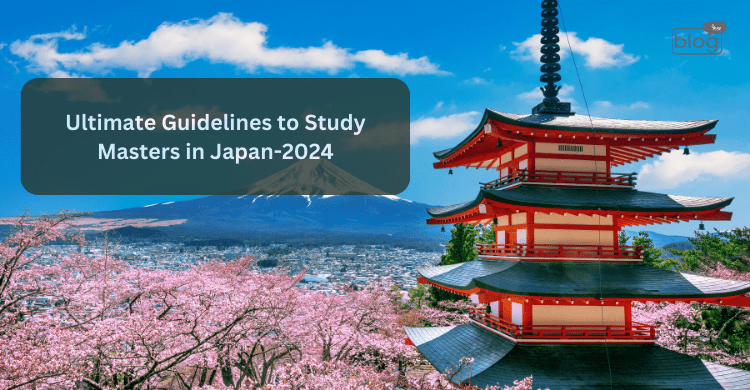Starting a Master’s program in Japan is an exciting opportunity that provides a world of better academics, cultural diversity, and experiences that can’t be found anywhere else. It’s essential to arm oneself with the best guidance to prepare for the trip so that one can get the most out of the educational stay in the Land of the Rising Sun.
Selecting the suitable University:
Choosing a suitable university has a significant impact on both academic and personal development. There are many prestigious institutions in Japan, each with special advantages. Considering faculty experience, research possibilities, and resources at one’s disposal, conduct in-depth research. Remember to investigate the extracurricular and cultural offerings of any university to guarantee a comprehensive education.
Acquiring Fluency in Japanese:
Although many Japanese colleges have English-language programs, learning Japanese can greatly improve student’s experience. Proficiency in Japanese can help one communicate more effectively and fully immerse oneself in the culture. To overcome communication hurdles, consider enrolling in language classes provided by the student’s preferred university or neighborhood language schools.
Understanding the Culture:
An essential component of studying abroad is getting to know Japan’s diverse cultural landscape. Learning about the social mores, traditions, and customs of the Japanese people. In Japan, people have a strong work ethic, respect for authority, and a deep sense of punctuality. Accepting these principles can assist the student in integrating and making a good impression on his/her peers and instructors.
Financial Planning:
There are always financial difficulties when studying overseas, and Japan is no exception. Students should create a thorough budget that accounts for living expenditures, tuition, housing, and other expenses. Also, students must look into scholarships offered by their selected university as well as by outside organizations. International students also can work part-time, but they must be careful not to let it conflict with their academic obligations.
Getting Used to Academic Rigidity:
Academic programs in Japan are renowned for their strict requirements. To fulfill deadlines, be organized and ready for a hard task. Students must develop efficient study techniques and time management abilities to properly handle academic obstacles. Interact with teachers and other students to create a cooperative learning atmosphere.
Research and Networking prospects:
The Master’s program is the ideal time to start working on creative initiatives, and Japan provides unmatched research prospects. Participate in conferences, workshops, and seminars to broaden one’s scholarly network. Students should work together with academics and researchers to extend their horizons and make a significant contribution to cutting-edge studies in their area.
Cultural Immersion:
One of the most important parts of studying abroad is getting fully immersed in Japanese culture. Students should go to festivals and events in the area, and discover the varied food scene. They can get involved in extracurricular activities or clubs to meet students from other countries as well as local ones. Moreover, creating a robust social network will improve one’s life on a personal level and give important insights into the community.
Health & Wellness:
A student should give his physical and mental health first priority. Although the healthcare system in Japan is excellent, having full coverage of health insurance is crucial. Everyone must look for the wellness services that the institution offers, and shouldn’t be afraid to ask for help when they need it. A successful and satisfying experience depends on striking a balance between your personal and academic life.
In 2024, earning a master’s degree in Japan will be a life-changing experience that calls for thorough preparation and flexibility. One can guarantee a fulfilling and engaging experience that extends beyond the classroom by selecting the ideal university, integrating into the community, handling money wisely, and developing both intellectual and interpersonal relationships.
For more content, Click here
Writer
Shihab Shahriar Sporsho
Intern
Content Writing Department, YSSE

